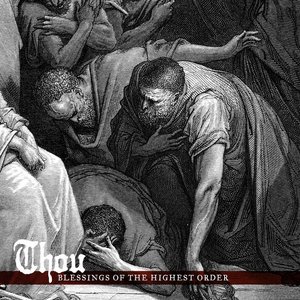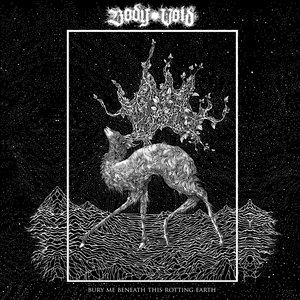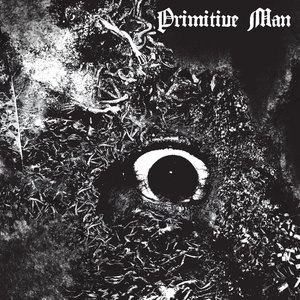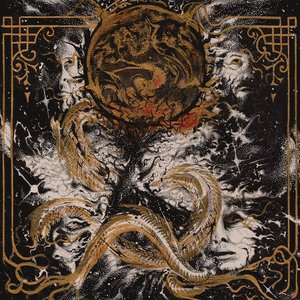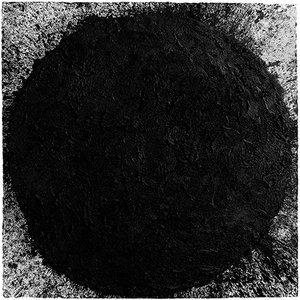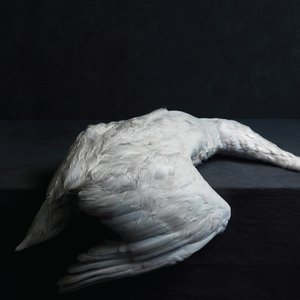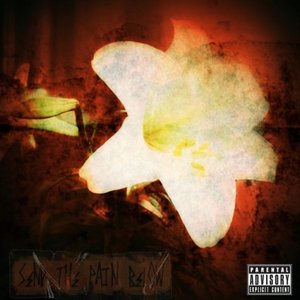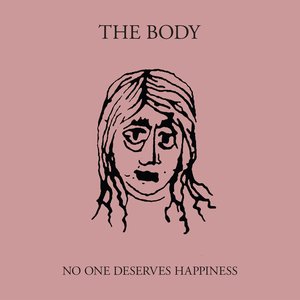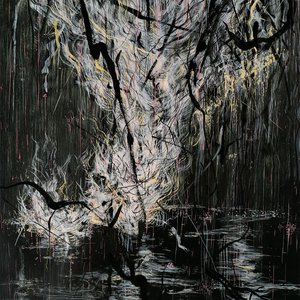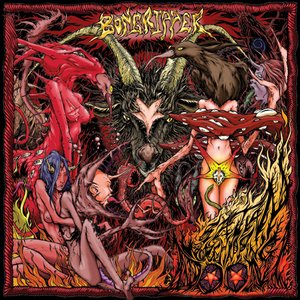Wiki
-
Release Date
14 October 2013
-
Length
10 tracks
The Body excel in inducing discomfort. You need not listen to a sole note by the Portland, Ore., noise-metal transgressors to know as much: The press photos for their 2010 breakthrough, All the Waters of the Earth Turn to Blood, depicted drummer Lee Buford and guitarist Chip King poised in a window, rifles and binoculars pointed outside in anticipation of incoming targets. The cover of a recent and masterful EP, Master, We Perish, featured a grimacing skeleton bent backwards atop a pile of stone, what’s left of his frame splitting at the midsection. On albums, they've covered songs about dead cops and Sinéad O’Connor’s Thatcher-indicting and race-baiting “Black Boys on Mopeds”; on the stage, King’s small army of amplifiers and Buford’s cannon-shaped drums become the instrumental equivalent of meat tenderizer. In a recent interview with Tiny Mix Tapes, Buford summarized the Body’s extra-musical antagonism with two swift sentences: “I don’t really like most people in the world, or trust them. The guns are less of a thug or violent thing and more of a separation between us and society.”
Christs, Redeemers—the Body’s third record and first for the decidedly non-metal Thrill Jockey—continues the duo’s tradition of exaggerated malevolence. As with All the Waters, the action opens with the all-female Assembly of Light Choir singing a hymn of solemn despair. This time, though, they’re sucked into a gyre of noise, slivers of static slowly accreting into a sea of volume. Indeed, on the whole, Christs, Redeemers is the most dense, belligerent and focused music that The Body has ever made. In less than three minutes, “Failure to Desire to Communicate” plows through a near-hardcore rumble before downshifting toward hypnotic, hazardous doom; “Shrouded” buries King’s cries in a blanket of static, at least until Buford’s drums overload the entire frame. Where no song on All the Waters lasted for less than four minutes, only half of these get to that point at all. These relatively brief numbers function as black holes, then, sucking up everything the Body has ever done—the horrific samples and suffocating noise, the guitar so low it sound like a bass and the drums so big they sound like artillery blasts, the lyrics about how “the pain of living holds no victory” and the curdling bleat that delivers them—into impenetrable, intimidating cores. Christs, Redeemers finds the Body at the apogee of their brutality.
Yet the same focus and force that make Christs, Redeemers so heavy are the same attributes that make it less terrifying than its predecessors. In the past, The Body’s uneasiness has depended as much on unpredictability as it has on excessive volume or irate pleas. The Body have thrived on a certain sort of stylistic mania, sonic evidence that the guys holding the guns in those photos might actually be completely insane. During All the Waters, for instance, they played along with a sampled-and-fractured clip of a congregation speaking in tongues, with knee-deep noise and King’s howls battling back with believable animosity; during “Worship”, the closer of this year’s earlier EP, they applied their damaged aesthetic to a 10-minute post-rock mold, building the cacophony into a climax that gave way to a slow-motion comedown.
But Christs, Redeemers feels comfortable and somewhat safe, with song structures that are practically standard and a few techniques repeated often enough to become predictable. The Assembly of Light Choir, for instance, starts to feel like a compositional crutch, with their hall-of-terror harmonies augmenting the despair on half of the record’s tracks in much the same way a coffee-shop guitarist might use a Hammond organ to add gravity to heartsickness. Much the same applies to the album’s ample string sections, their melodrama mostly filling space and time and plainly replicating a feeling that’s already established. All of these tendencies collide for “An Altar or a Grave”, a string-swept doom plod that slinks through a madrigal-choir midsection only to arrive at a coda where King and Buford simply turn up and check out. It’s an obvious string of choices for a band whose sort of audio terrorism has forever hinged on making listeners aghast with surprise—as Buford might put it, on separating their music from others’ society. The most successful statements on Christs, Redeemers balance momentum with instability. “Denial of the Species”, for instance, pushes the hangman guitar, haunting choir, and ghoulish strings beneath a beat that borders on techno. It’s a tease for an onslaught of distortion that never comes, a climax denial buried in a record that typically delivers the promised payload. Once again, it’s the image of the Body projected in sound.
At the very least, this new-found concision and direction might prove useful for the Body in the short-term: This is their Thrill Jockey debut, after all, a chance for them to find freaks within a much broader audience. Why not focus, then, on the most familiar and surefooted side of the band—that hellish, disturbing blitz of doom, noise, and nastiness? Likewise, with the samples and choirs now tucked safely and violently into the kernels of these songs, perhaps they’ll speak more readily to metal audiences, by which they’ve often been overlooked or mislabeled. But the Body haven’t mattered only because they’ve been loud, distorted, and mean, the troika of qualities that Christs, Redeemers spotlights most capably. They’ve mattered because they were able to twist that mess of metallurgh into spaces where it didn’t necessarily belong, into studio experiments with electronics and dynamics and effects that underlined their wrath in unlikely ways. That’s not lost on Christs, Redeemers, but like the terror it once necessitated, it is certainly diminished.
Album descriptions on Last.fm are editable by everyone. Feel free to contribute!
All user-contributed text on this page is available under the Creative Commons Attribution-ShareAlike License; additional terms may apply.

